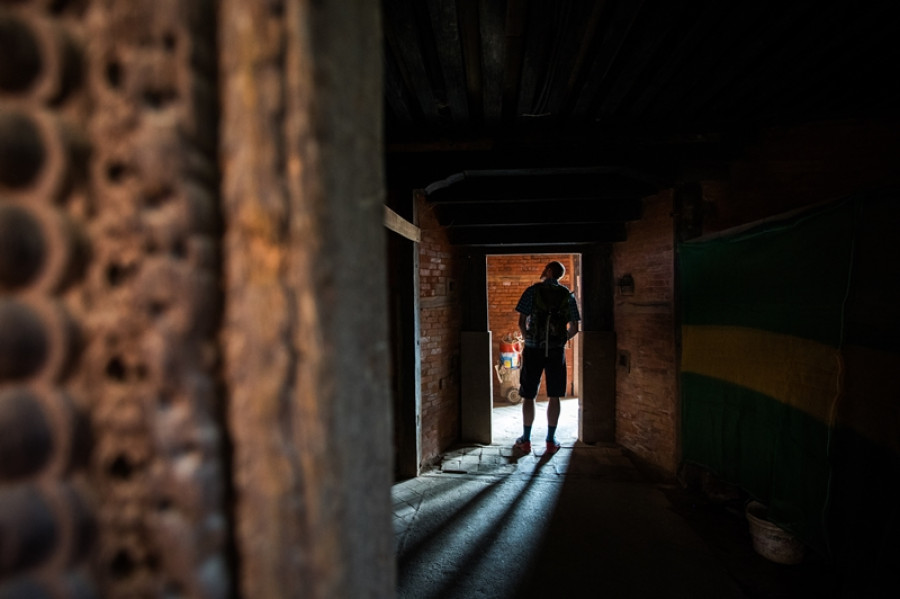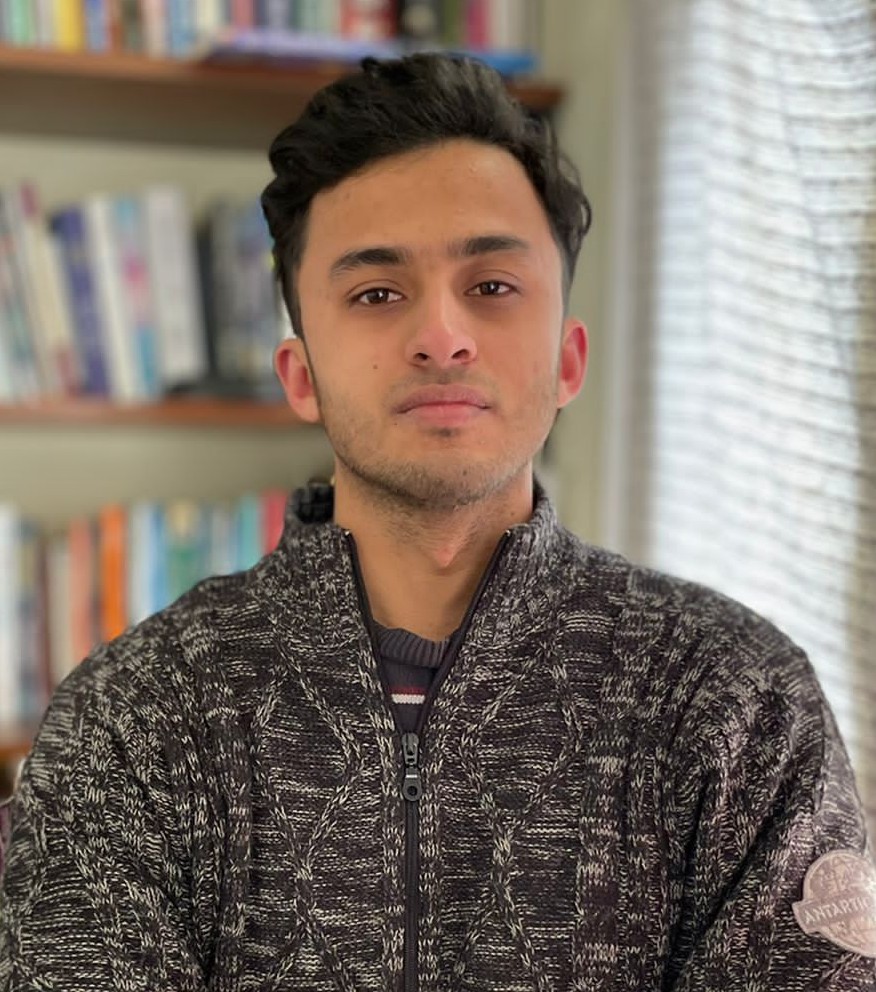Fiction Park
Going down memory lane
What difference is there then between what I remember and what I imagine, and can I imagine what I cannot verify and still sincerely consider it as the truth?
Sarans Pandey
You know it’s been awhile when the place that you once knew every nook and corner of now leaves you at the mercy of incorrectly spelt signboards for navigation. As the vehicle approaches the notorious black gate of what used to be my school compound, I roll down the window, hoping to catch a glimpse of the momo pasal that used to be on the opposite side of it. Perhaps my memory has failed me, I say to myself, because I see no trace of the shop that is etched so vividly in my heart.
They say you never cross the same river twice. Maybe it works the same for people and places.
The road that was once so narrow has now grown, and that too generously, to accommodate footpaths on either side. Had the footpaths themselves not shown similar liberality by embracing every electricity pole along the way, I would have been more impressed. But then again, it would be un-Nepali to not share the spoils, even in destitution.
I pull up by the side of the road and take a moment before I step out. There are a lot more shops than before albeit of the same category—the traditional and minimised version of the grocery store that we all call ‘kirana pasal’. I smile as I see a little kid run to an old shopkeeper to get a packet of Wai Wai. I guess some things never change, aside from Binod Chaudhary’s net worth obviously. For a moment back then it had seemed as if Mayos and Rara would mount a challenge, but alas that didn’t go on for long. Experimenting is not a habit easily adopted by a Nepali.
Sometimes I marvel at the proliferation of these stores, and I see no reason for its widespread adoption. In the distance, I notice the first shop that looks the same both in my memory and in present. It is that of a barber that we used to frequent, although I wouldn’t be able to recognise the man whose name we never knew. For us students he was simply “barber dai”. He would come to school, I think a couple of times a week, and spend the remaining in this store that is covered with posters of young Bollywood stars from back in the day. I don’t remember an occasion when I got a haircut from him and ended up not looking like, how do I put it, an idiot. Mind you this was before someone invented the ‘fade’. But it’s not like we had an option, for some reason long hair doesn’t sit well with teachers. Perhaps they don’t want to see any growth for which they cannot take credit.
The momo pasal should have been a few blocks away from the barbershop. I take slow steps to try and retrace a route from my memory; one that begins from over the wall by the black gate, across the road and then ends near, well, I can’t say for sure. I look carefully at every shutter, hoping I can find at least a hint to my past that now seems to have been erased. But suddenly, like some epiphany, it dawns on me that the shop I am looking for is straight ahead and to the right. Is it memory or is it reflex? I cannot say for sure but I will take whatever help I can get.
I step off the footpath momentarily to overtake an electricity pole and I find myself in front of a familiar stairwell that leads downstairs, but to an unfamiliar restaurant—one devoid of the large utensil used to steam momo up front. Is it or is it not the place I am looking for, I wonder.
A person by the entrance looks at me; half expecting me to enter the shop, half just out of curiosity.
“Do you serve momos?” I ask the man to which he replies with a hint of indignation, “I don’t work here”.
I move past him and the curtain that works as the entrance door, and I step into a darkly lit room that is powered by a dusty tube light that occasionally flickers. In the far corner, a little kid sits on a stool as he plays with a mobile phone that has a qwerty keyboard. I think about the time when such devices were in fashion and I feel happy to see one that has survived the merciless battlefield of progress.
As soon as the boy spots me he calls his mother out loud, without ever taking his eyes off the screen, “Mom there’s a customer!”
A middle-aged lady emerges out of a makeshift room bordered by a large cupboard, eager to greet the potential customer in me. But the smile on her face is quick to disappear, as instead of placing an order I ask her about the Momo Pasal.
“I don’t know” she replies rather curtly. Sensing that the woman won’t be of any help, I ask for tea and make my way to take a seat, hoping that my memory can do the job for me. I choose the one up front even though it has an unwashed plate with strands of noodles—most likely the remnants of a meal that the man in front of the shop left behind.
The first thing I notice is a lighter which lies on the table and then the green mug—or bottle or whatever you call it—the one out of which our parents warned us to never drink.
As I hold the mug’s handle, memories come rushing back. I am transported to the past, or perhaps the past has transported itself to the present, and I see the figure of my roommate picking up the lighter to fire up his ten-rupee cigarette. Probably if he’d bought the entire pack he could have noticed the warning printed in front of it, but I don’t want to make any revisionist intervention. Life was good back then, but then again, these conclusions made in hindsight might someday offer a similar picture about the present that I would say looks dreary.
I find it rather odd that here I am reliving my past at a place that no longer exists except in my memory, and as such I cannot provide proof to validate its existence. What difference is there then between what I remember and what I imagine, and can I imagine what I cannot verify and still sincerely consider it as the truth? If memory requires imagination does it not mean that the past is part fact and part fiction and even though it is true for you, your recollection might not entirely be the truth?
As I dive into the portal of my past that has now opened in front of me, an old man comes out of the same makeshift room out of which the woman had emerged. She then asks him the question that I asked her, to which he replies confidently with an answer that I let in from one ear and out another. My tea arrives and I take a sip out of it. Then I take a long hard look at my friend and I say to him, “It’s better this way.”




 22.12°C Kathmandu
22.12°C Kathmandu












